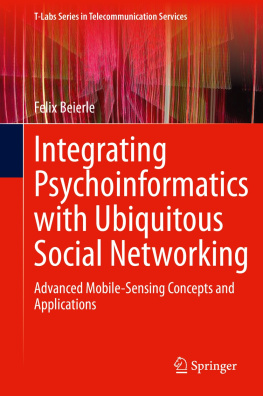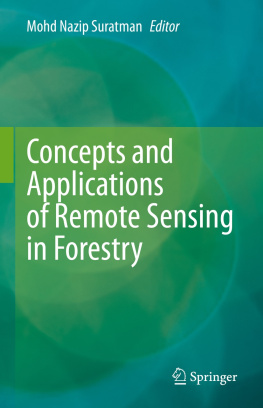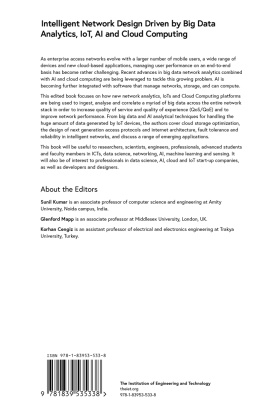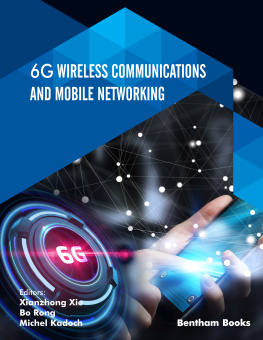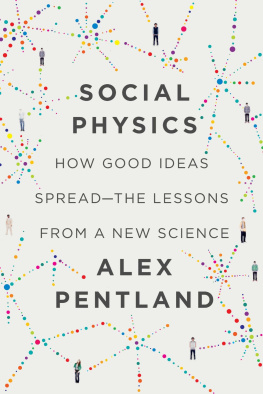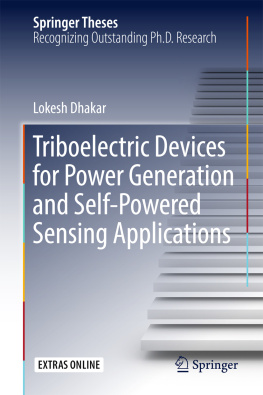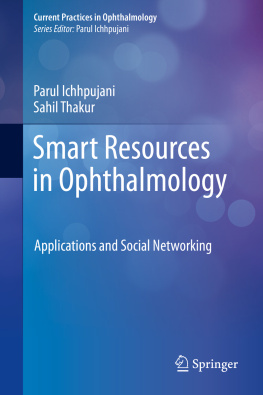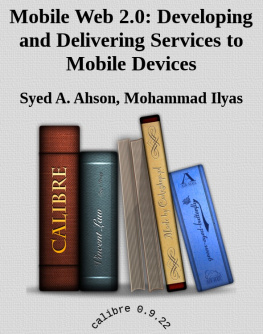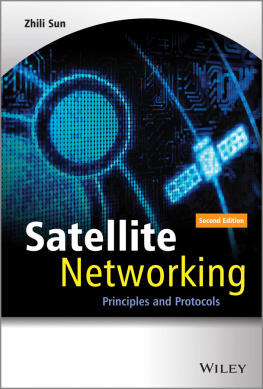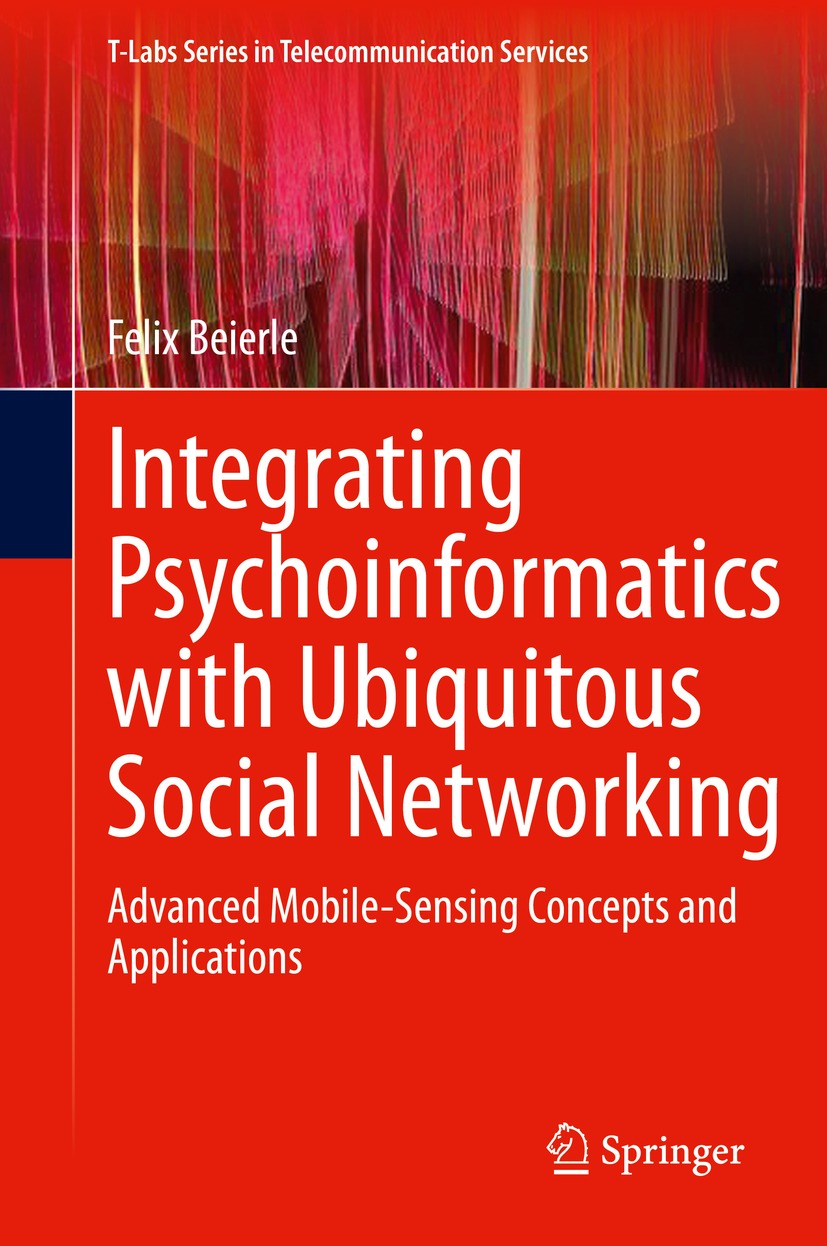T-Labs Series in Telecommunication Services
Series Editors
Sebastian Mller
Quality and Usability Lab, Technische Universitt Berlin, Berlin, Germany
Axel Kpper
Telekom Innovation Laboratories, Technische Universitt Berlin, Berlin, Germany
Alexander Raake
Audiovisual Technology Group, Technische Universitt Ilmenau, Ilmenau, Germany
It is the aim of the Springer Series in Telecommunication Services to foster an interdisciplinary exchange of knowledge addressing all topics which are essential for developing high-quality and highly usable telecommunication services. This includes basic concepts of underlying technologies, distribution networks, architectures and platforms for service design, deployment and adaptation, as well as the users perception of telecommunication services. By taking a vertical perspective over all these steps, we aim to provide the scientific bases for the development and continuous evaluation of innovative services which provide a better value for their users. In fact, the human-centric design of high-quality telecommunication services the so called quality engineering forms an essential topic of this series, as it will ultimately lead to better user experience and acceptance. The series is directed towards both scientists and practitioners from all related disciplines and industries.
** Indexing: books in this series are indexing in Scopus **
More information about this series at http://www.springer.com/series/10013
Felix Beierle
Integrating Psychoinformatics with Ubiquitous Social Networking
Advanced Mobile-Sensing Concepts and Applications
1st ed. 2021

Logo of the publisher
Felix Beierle
Technische Universitt Berlin, Berlin, Germany
ISSN 2192-2810 e-ISSN 2192-2829
T-Labs Series in Telecommunication Services
ISBN 978-3-030-68839-4 e-ISBN 978-3-030-68840-0
https://doi.org/10.1007/978-3-030-68840-0
The Editor(s) (if applicable) and The Author(s), under exclusive license to Springer Nature Switzerland AG 2021
This work is subject to copyright. All rights are solely and exclusively licensed by the Publisher, whether the whole or part of the material is concerned, specifically the rights of translation, reprinting, reuse of illustrations, recitation, broadcasting, reproduction on microfilms or in any other physical way, and transmission or information storage and retrieval, electronic adaptation, computer software, or by similar or dissimilar methodology now known or hereafter developed.
The use of general descriptive names, registered names, trademarks, service marks, etc. in this publication does not imply, even in the absence of a specific statement, that such names are exempt from the relevant protective laws and regulations and therefore free for general use.
The publisher, the authors and the editors are safe to assume that the advice and information in this book are believed to be true and accurate at the date of publication. Neither the publisher nor the authors or the editors give a warranty, expressed or implied, with respect to the material contained herein or for any errors or omissions that may have been made. The publisher remains neutral with regard to jurisdictional claims in published maps and institutional affiliations.
This Springer imprint is published by the registered company Springer Nature Switzerland AG
The registered company address is: Gewerbestrasse 11, 6330 Cham, Switzerland
Integrating Psychoinformatics with
Ubiquitous Social Networking
Advanced Mobile-Sensing Concepts
and Applications
vorgelegt von
M.A., M.Sc.
Felix Beierle
ORCID: 0000-0003-2702-9893
an der Fakultt IV Elektrotechnik und Informatik
der Technischen Universitt Berlin
zur Erlangung des akademischen Grades
Doktor der Naturwissenschaften
- Dr. rer. nat.
genehmigte Dissertation
Promotionsausschuss:
Vorsitzender: Prof. Dr.-Ing. Sebastian Mller, Technische Universitt Berlin
Gutachter: Prof. Dr. Axel Kpper, Technische Universitt Berlin
Gutachter: Prof. Dr. Rdiger Pryss, Julius-Maximilians-Universitt Wrzburg
Gutachter: Prof. Dr.-Ing. Jran Beel, Trinity College Dublin
Tag der wissenschaftlichen Aussprache: 23. Juni 2020
Berlin 2020
Abstract
There are fundamental differences in the way people experience behaviors and emotions. The field of psychometrics allows the quantifiable measurement of personality traits that describe such inter-personal differences. Vast amounts of psychological and psychoinformatical studies show that personality traits are not only associated with different everyday preferences, but also with the way people form interpersonal bonds in social networks. However, these research results are rarely considered in the research and development of social networking services. We argue that such understanding of people, their behaviors, emotions, and how they form bonds with other people can be integrated in social networking services and may ultimately improve real-life social well-being. The objective of this doctoral thesis thus is the integration of psychoinformaticsthe intersection of psychology and computer sciencewith ubiquitous social networking.
Psychoinformatics uses objective measurements to research and deepen the understanding of personality-related differences in human experiences and behaviors. A common approach is mobile sensing. Such tracking of sensor data has serious implications regarding the privacy of users. However, currently, there are no structured approaches in dealing with these privacy concerns. Furthermore, when planning a psychoinformatical study, it is unclear to what extent demographical properties and personality traits play a role when collecting data from daily life scenarios. We developed a structured approach for privacy-awareness for mobile sensing in psychoinformatics and conduct a study on what data researchers can expect users to be willing to share. Our results can help researchers with study planning, and study participants benefit by increased privacy-awareness. While there have been several studies related to personality traits and smartphone data, there are knowledge gaps, specifically with regard to smartphone usage frequency and duration in relation to the users personality. We collected and analyzed data and fill this gap. Our results are valuable for psychologists, for example, when researching smartphone overuse. Additionally, our results helped researchers and software developers of mobile systems understand their user base better.
In particular, we designed, developed, and deployed the Android app TYDRTrack Your Daily Routinefor the collection of smartphone sensor and usage data. We developed and implemented PM-MoDaC, a full-scale privacy model for mobile data collection apps, consisting of nine different technical and design-related measures. We released TYDR on Google Play and attracted nearly 4,000 users. Evaluating our privacy model, we analyzed what data users are willing to share with researchers; for example, younger users tend to be less willing to share data. We conducted a study analyzing the relationship between personality traits and smartphone usage frequency and usage session duration. On average, the users in our sample (n = 526) used their smartphone 72 times per day, with a mean session duration of 3.7 minutes. Our study reveals that neurotic and extraverted users use their phones more frequently, while conscientious users have shorter session durations.

